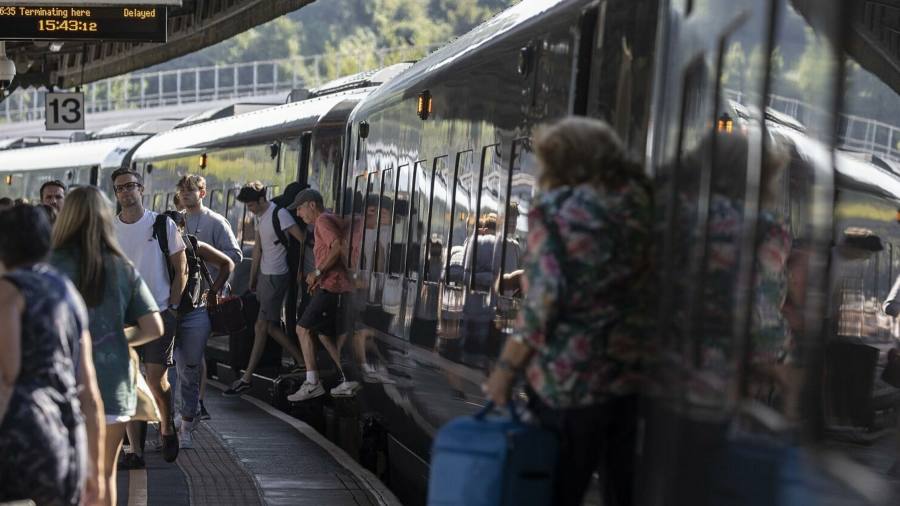Ministers are facing growing calls to scrap the annual, inflation-linked increase that affects about half of England’s train fares to help ease the cost of living crisis and encourage more people back on to public transport.
Price rises for regulated fares, which tend to be on commuter routes and include season tickets, are calculated using the retail price index for July as a benchmark. This is expected to be close to the June figure of 11.8 per cent when it is published on Wednesday, the highest level since the early 1980s.
The Department for Transport has promised to take “decisive action” to protect passengers and has said it will not increase fares by as much as the July RPI figure. It has also said it will delay the price rise from January to March next year.
But passenger groups have called on the UK government, which is responsible for setting fares in England, to go further. The Campaign for Better Transport said there was evidence that fare rises reduced passenger numbers, and that a freeze could be funded by introducing a new tax on aviation fuel for domestic flights.
“The money raised could pay for a rail fare freeze next year to make the trains cheaper and encourage more people to use them,” said Paul Tuohy, chief executive of Campaign for Better Transport.
Chris Page, chair of passenger group Railfuture, said the government should make rail travel “much more affordable” to help tackle the cost of living crisis.
“The government claims that the fare rise will be below inflation, but the devil will be in the detail. They won’t say what the increase will be, or which fares it will apply to,” he said.
Transport secretary Grant Shapps and chancellor Nadhim Zahawi have pledged to follow convention and not make any significant policy announcements until a new UK prime minister is chosen by the ruling Conservative party on September 5.
One government insider said no decisions on rail fares would be made this month: “The usual range of options are being worked up for the next government.”
Regulated rail fares apply to around 45 per cent of tickets, including season tickets and many off-peak fares on long-distance routes. Fares in Wales typically track the increase in England, while the devolved administration in Scotland follows a similar formula and mirrored the rise across the rest of the UK in 2022.
Annual regulated fare rises, implemented in January, were traditionally calculated using the RPI plus one formula based on the previous July inflation data. But ministers intervened when setting the increase for this year, keeping it at RPI, which was 3.8 per cent in July 2021, and delaying the rise until March.
Passenger groups have long called for the system to be overhauled to prevent commuters and other travellers facing real-terms rises in fares, particularly as the RPI inflation measure overestimates the annual pace of price rises by nearly 1 percentage point.
But ministers will face a difficult balancing act when they do eventually decide on changes to fares for 2023. Any decision that substantially shields passengers from inflation would put further pressure on the rail industry’s finances.
The industry is facing a funding gap of £2bn per year as ticket revenues fell during the coronavirus pandemic and is facing national strike action this summer as unions protest at efforts to balance the books by cutting staff costs. Members of the RMT are due to stage further strikes on Thursday and Saturday that are expected to bring large parts of the network to a halt.
The disruption of rail services comes as ministers were warned by regional leaders this week of “significant” cuts to bus timetables when coronavirus government support ends.
Mayors in northern England have called for funding to be maintained while the industry transitions to changing travel patterns post-pandemic.
The emergency funding was due to run out in April but was extended until October. However, bus operators must give advance notice of timetable changes, meaning that a decision on cuts could be made in the coming days. The DfT has said it is committed to investing £3bn into bus services by 2025, but routes must be commercially viable and reflect passengers’ needs.


